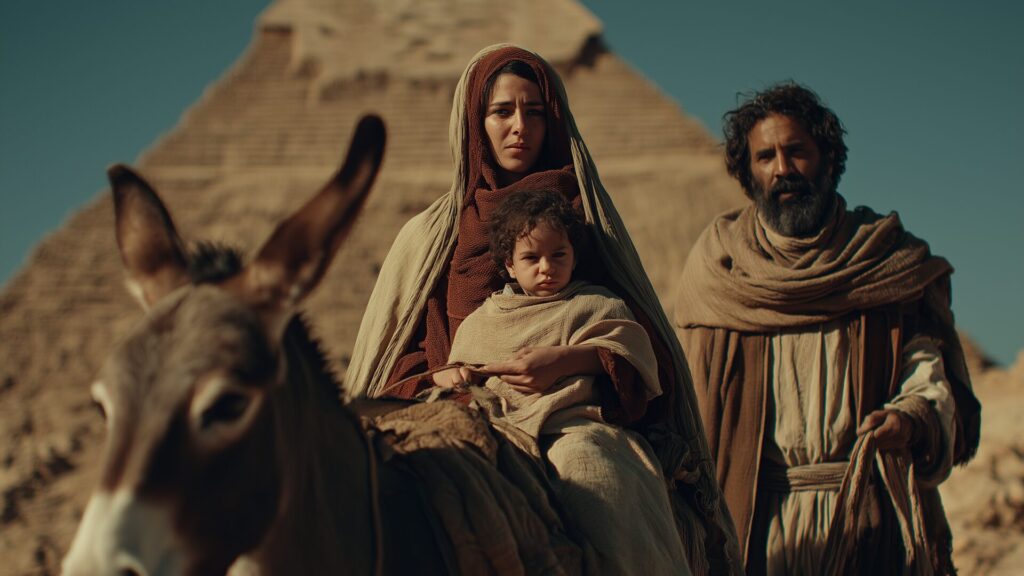Parable of the sheep and the goats
“Then the righteous will answer him, ‘Lord, when did we see you hungry and feed you, or thirsty and give you something to drink? When did we see you a stranger and invite you in, or needing clothes and clothe you? When did we see you sick or in prison and go to visit you?’ The king will reply, ‘Truly I tell you, whatever you did for one of the least of these brothers and sisters of mine, you did for me” (Matthew 25:40).
Would one of the angels like to get the Lord a hamburger and a Coke?”
This line from Keith Green’s lesser known song “The Sheep and the Goats” cuts with comedic irreverence. Better known for ballads like “There is a Redeemer” or “Oh Lord, You’re Beautiful”, “The Sheep and the Goats” relates almost word-for-word the parable found in Matthew 25. Part protest speech, part comedy routine and part sermon, it hits differently than any of Green’s aforementioned favourites.
As Jesus accuses the goats of failing to feed, welcome, clothe or visit Him, Green brings to life the King’s anguish. Far from some poetic monologue, the listener can feel Jesus’ discomfort and sense of abandonment. But, true to their form, the goats make excuses. They didn’t know what size Jesus is, so how could they know what clothes to get Him? Likewise, they had no idea He was sick, but if they had they certainly would have sent a card. They even question the circumstances around Jesus’ incarceration. If He was in prison, they imply, surely it was because of something He’d done? To top it all off, in response to His hunger, they offer to have an angel fetch Jesus the aforementioned fast food order. Jesus’ response? He’s not hungry. And suddenly, neither are the goats.
The Parable of the Sheep and Goats sits at a crescendo point in Matthew’s narrative. The three parables that come before (The Talents, Ten Virgins, and Wise and Unwise Slaves) all stress the importance of being ready for the coming of God’s kingdom. Jesus warns His audience that the kingdom’s coming will not be an event that they will be able to mark it in a calendar in order to start preparations at a more convenient time. Jesus insists that because of this, His followers should be prepared at all times.
On top of this, Jesus also seems to believe that it’s important to understand the consequences of our preparedness, or lack thereof. The Parable of the Sheep and Goats gives us an apocalyptic insight into the criteria that “the nations” will be judged with. In particular, Jesus speaks of the treatment of “the least” as to whether or not the nations will be welcomed into God’s kingdom.
Who’s Responsible?
“All the nations will be gathered before him, and he will separate the people one from another as a shepherd separates the sheep from the goats” (Matthew 25:32).
Historically, there has been some debate as to who exactly Jesus is speaking to here. Some have pointed to the term “the nations” because it is used as far back as Genesis (Genesis 18:18) to refer to those outside God’s covenant family. However, I don’t find that interpretation to be compelling. God has a heart for the nations, but He primarily chooses to work with a smaller group of people to bring healing and restoration to all (from the family of Abraham to the first-century Church). Make no mistake: God’s plan is for all people from all nations to be restored (Revelation 7:9). He makes no mention of a special judgement reserved just for Israelites, with other ethnicities relegated to a different judicial system. It appears that Jesus is referring to all peoples from all times. You and I can have the assurance that when all is said and done, our lives will be judged by the same metric as those living in the first century!
The least
If there has been debate about who Jesus’ target audience is, there seems to be none over who “the least” are. Jesus makes it clear: “whatever you did/did not do for the most vulnerable of my children, you did/didn’t do it for me”. Jesus is describing the other: the outcast, the widow, the social reject. These were the people most drawn to Jesus’ ministry, and for good reason. God’s heart for the other echoes throughout Scripture. God lambasts Israel in Ezekiel 34 for being an absentee shepherd. For their callous disregard of the other, and for their greedy oppression, God declares that He will “remove the caretakers from the flock”, and will shepherd Israel Himself.
In this parable, Jesus is speaking to both His first-century audience, and directly to you and I. No matter who we are, we will all be judged by the same metric. This raises an uncomfortable question. If our treatment of our fellow human beings equates to our treatment of Jesus Himself, how are we doing? Have we stepped up to the challenge, or have we sidestepped it? Is it possible that, like the goats in Keith Green’s song, we’ve deferred our responsibility to feeding the hungry, clothing the naked and visiting the prisoner? Have we decided they aren’t our ministry?
But, before we are swallowed by guilt, wondering whether we “measure up” to Jesus’ standard, we should consider one thing. Though His heart of justice is strong, His heart of mercy is stronger. Jesus isn’t keeping a tally of our good and bad deeds (after all, he’s not Santa Claus).
To me, the Parable of the Sheep and Goats is a call to justice; to recognise and respond to God’s heart in our context. We all have influence, and Jesus is urging us to use it wisely. Whether you are the CEO of a multinational company or a grocery store worker, your mandate is the same: to seek justice for those who can’t get it for themselves. To provide your fellow human beings with a better sense of dignity and respect. To live with kindness and compassion.
Though this parable is framed in solemn terms, it should be comforting for those of us who struggle with our faith. It serves as a reassurance that God isn’t as interested in our theological leanings as much as in how those theological leanings translate to incarnated (in-the-flesh) living. We don’t become a goat by believing wrongly: we become a goat by failing to love. Love, unlike theology, cannot be measured by creeds or checklists. It is either genuine, or insincere. With love, there is no middle ground.
Jesse Herford is a pastor and chaplain in Palmerston North, New Zealand.






